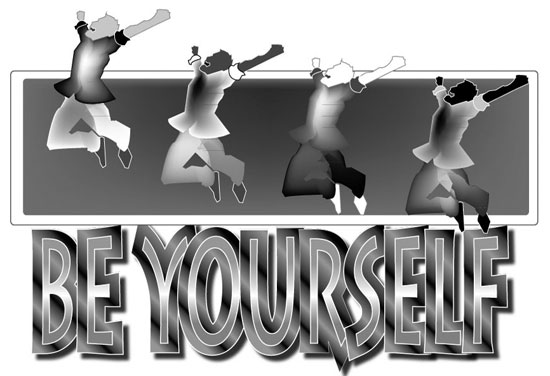Make every day National Coming Out Day

We avoid the truth trapped inside ourselves, wondering if others know our secret. It’s time to let go and come out of the darkness to recognize ourselves. We are the same, different as we are.
In the early 20th century, coming out meant entering into the subcultures created by lesbian, gay, bisexual and transgender groups and becoming a part of those communities, similar to a debutante’s presentation to society.
Around the time of the Stonewall Riots in 1969, which took place in the Greenwich Village neighborhood of New York City, coming out took on a new meaning, associated with not just identifying oneself to one specific community, but also identifying to those outside of that community so that they might gain awareness as well.
Coming out, in one sense, means identifying how you feel about your sexual orientation, who you are attracted to and what gender identity you have taken on, whether or not it is the one assigned to you at birth.
Coming out means exposing a true, deep part of yourself, a part which cannot be changed or ignored, a part which has not just developed all of a sudden, but has grown and matured over the years. It does not form the whole basis of a person’s character, for a person has many different aspects and identities, and it is not just based on surroundings and what other people have to think, feel or say, but it is an important part.
The recognition of this identity or orientation can be a long, complex process, a gradual awareness of what makes someone unique, but it can also be a difficult process, even without the harassment one might receive from others.
Coming out has taken on even more significance in recent years. Though great strides have been made in LGBT rights with the repeal of “Don’t Ask, Don’t Tell,” the Matthew Shepherd Act providing federal assistance to prosecute physical hate crimes, and the legalization of same-sex marriages and civil unions in some states, this does not cover the wide range of social intolerance and injustices that LGBT people have suffered and continue to suffer.
In a 2009 survey published in the 2010 Annual Review of Public Health, of more than 7,000 LGBT students aged 13-21 – the time that most people gain awareness of who they are and what relationships they wish to form – 80 percent of the students stated they had been verbally harassed, 40 percent had been physically harassed, 60 percent felt unsafe and 20 percent had been physically assaulted at school.
The lack of security at what should be a guaranteed safe place, where people should be met with empathy and comfort, can cause physical and psychological damage. A 2004 Minnesota Student Survey showed that out of 2,255 LGBT students, 37.4 percent had attempted suicide. Because of this, we have lost dozens of youths like Asher Brown, Billy Lucas, Seth Walsh, Justin Aaberg, Raymond Chase and Tyler Clementi. We have lost many more as the victims of violent hate crimes. Some have been tormented simply because they seem to be LGBT, even when they are not.
Because of the violence and deaths, organizations like The Trevor Project, It Gets Better Project, Gay Lesbian and Straight Education Network (GLSEN) and Human Rights Campaign have created supportive networks for the LGBT community to receive help in dealing with their problems and words of advice. But is it enough?
It is time to be true to ourselves and to others. While LGBT persons are coming out, so should we all, LGBT and non-LGBT alike. Silence against discrimination communicates acceptance of it, and we all are diminished anytime someone is demeaned. It is time to stop the silence and start speaking out against those who perpetuate hate, violence and rigid roles. Separating persons into groups perpetuates stereotypes and discrimination, and when there are differences, we need to create bridges toward one another to understand those differences, regardless of what they are.
In the Ally Pledge for Ally Week created by GLSEN, which took place nationwide and on campus Oct. 17-21, one does not slur or use offensive language about LGBT people but intervene whenever possible to stop harassment and support anti-bullying endeavors. The rest of society can learn a lot from LGBT-ally communities about self-pride, acceptance and support.
National Coming Out Day and Ally Week should be an inspiration for everyone to accept and offer support and encouragement to anyone, regardless of gender, race, social class, religious belief, etc. Everyone should embrace who they are and come out to the world as that person.
We need to stand up and support our friends, family and neighbors and show who we truly are by our words and our actions. Together, we can be far stronger than we ever were apart. Every day, come out as yourself and every week, be an ally to everyone.

